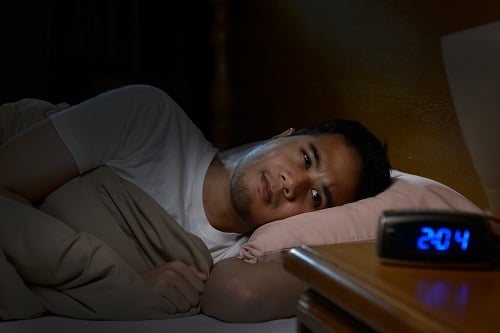Insomnia
What is Insomnia?
Schedule an Appointment
Our Sleep Medicine team uses advanced technology to diagnose and treat sleep disorders at a variety of locations throughout the community. To schedule an appointment, call 216-778-5864.
There are four basic types of insomnia:
- Difficulty falling asleep
- Difficulty staying asleep
- Waking up too early
- Poor quality sleep
A person with insomnia may have the following symptoms:
- Feeling tired and grumpy during the day
- Having trouble concentrating at work or school
- Falling asleep during the day
Everyone has an occasional poor night's sleep. For most people it lasts only a few days and goes away without treatment. However, in some individuals, insomnia can become a chronic or persistent problem. Stress or depression may cause a higher level of insomnia that may not go away on its own.
 More than a quarter of all adults have experienced symptoms of insomnia at some point. Less than 10% of adults will develop have chronic insomnia. It is more common in the elderly and women. In some cases, medical conditions or medication side effects may contribute to insomnia.
More than a quarter of all adults have experienced symptoms of insomnia at some point. Less than 10% of adults will develop have chronic insomnia. It is more common in the elderly and women. In some cases, medical conditions or medication side effects may contribute to insomnia.
If you answer yes to questions 1 or 2, and yes to 3 and 4, you may have insomnia:
- Do you have trouble falling asleep or maintaining sleep?
- Do you wake up too early or feel unrefreshed after sleeping?
- Does this occur even though you have the opportunity and the time to get a good night's sleep?
- Do you have at least one of the following problems?
- Low energy
- Lack of motivation
- Attention, concentration, or memory problem
- Poor performance at school or work
- Extreme mood changes
- Daytime sleepiness
- Trouble making errors at school, work, or driving
- Tension, headaches, or stomach aches
- Frustration or worry about your sleep
The first step is to discuss your sleep problems with your Primary Care Provider, who will decide if you need to see a Sleep Specialist. The Sleep Specialist will ask you questions about your sleep and may have you complete some questionnaires to help them get a better understanding of your symptoms. He or she may also order specific tests if a medical condition is suspected. An overnight sleep study may be ordered if the doctor suspects that you may have a primary sleep disorder contributing to your insomnia.
Many cases of insomnia will respond to changes you make on your own as mentioned in the sleep hygiene section. Changing your existing medications may also be helpful.
Many cases of chronic insomnia can be managed without the use of sleep-inducing medications. If a specific cause of the insomnia can be identified, then treatment can be directed at that issue. Often times, behavioral therapy can be very effective for patients whose insomnia is the result of a poor sleep environment, poor sleep habits, or psychological conditions. Some of the techniques used for behavioral treatment of insomnia include stimulus control therapy and sleep restriction.
In addition to behavioral therapy, medications are sometimes used to help improve your sleep. Some are very specific to insomnia while some medications that are used to treat other problems can also help you sleep. Your provider can help you decide which course of action would be best to remedy your sleep problem.